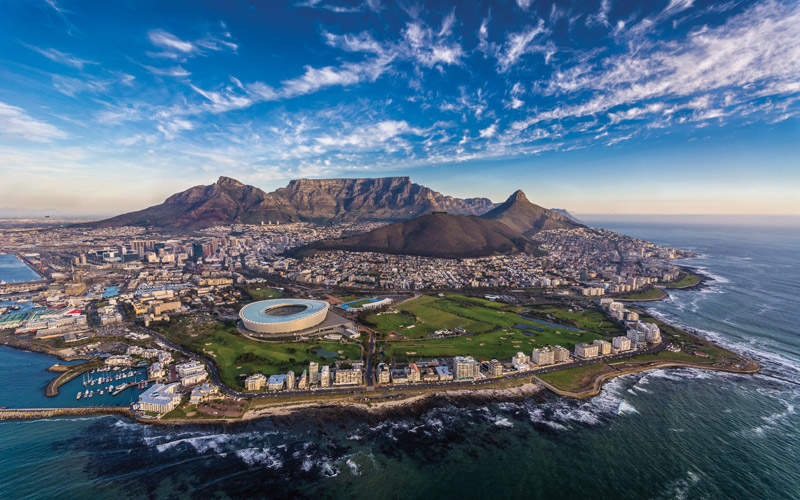Yes, there’s wine, but also art, yoga, cooking classes & kudu macarons
Cape Town Readies Itself for Cruise Liner Boom in 2010
Soccer World Cup Fever fever is set to boost luxury cruises to Cape Town in 2010 and beyond
The international cruise liner industry, worth an estimated $29 billion, is one of the fastest growing tourism sectors in the world, and the City of Cape Town has set up a work group to explore the business potential for the city.
"Globally, the number of cruise liner passengers grew from about four million in 1990 to 13,6 million in 2005. This high level service industry has enormous job creation potential, sustaining over half a million jobs each year," says Councillor Simon Grindrod, Mayoral Committee Member for Economic, Social Development and Tourism.
International tourism consultants have strongly recommended an in-depth study into the market potential of the cruise liner industry for the southern African region, and Cape Town in particular.
According to Scott Lagueux of Land Design, Charlotte, USA and Mitchell du Plessis Projects, southern Africa is one of the few remaining regions left in the world with untapped potential to develop its cruise liner industry.
"The timing is right, as it appears likely that cruise liners will need to be chartered by FIFA to provide accommodation for soccer fans visiting South Africa for the 2010 World Cup tournament. There are also plans for the proposed extension to the Cape Town International Convention Centre to double up as a cruise liner terminal," says Grindrod.
According to the consultants, there are currently some 33 ships of over 100 000 tons in service. Fuelled by the growing demand for high value cruise vacations, another 30 new ships are scheduled for delivery by December 2012.
While there has been a trend to build larger ships, there has also been an increase in the number of smaller and specialised vessels.
"There are three basic categories of cruises," says Theuns Vivian, the City’s Tourism Destination Manager.
"Firstly, there are classic round-the-world cruises. Secondly, there are ‘repositioning cruises’ where a vessel relocates from one home port and offers a cruise to another destination.
Then there are the destination-based cruises, where a ship is based at a home port in close proximity to the area of its itinerary and returns to the home-port at the end of the voyage.
"Fly/cruise tourism is usually available for each of these categories, but is limited to home ports with international flight connections such as Cape Town or Durban. Both cities currently feature on the schedule of round-the–world and repositioning cruises, but this is a limited market."
"Destination-based cruises are by far the most popular, especially in areas such as the Caribbean, the Baltic, West Coast of North America and the Mediterranean, the East Coast of Australia and New Zealand," says Vivian.
According to Grindrod, the City’s cruise liner work group will focus on two areas.
"One would be to drive strategic issues in terms of establishing a terminal and developing a regional destination for this market. Secondly, the work group will focus on immediate marketing initiatives to stimulate demand for Cape Town as a popular port of call."
"If South Africa is serious about the cruise liner industry it will need to provide facilities of an international standard. We need to explore a special form of private, public partnership to develop dedicated cruise liner terminals such as those of Sydney, Melbourne, Vancouver and Auckland," says Grindrod.
Starting to feel the 2010 soccer fever? Browse our FIFA 2010 World Cup section for the latest updates on the preparations ahead of the tournament.
Also, have a look at our On the Water section if you’re looking for water-based activities in and around Cape Town, and subscribe to our monthly Editor’s Picks Newsletter for a hand-picked monthly selection of the best attractions and things to do in Cape Town.








